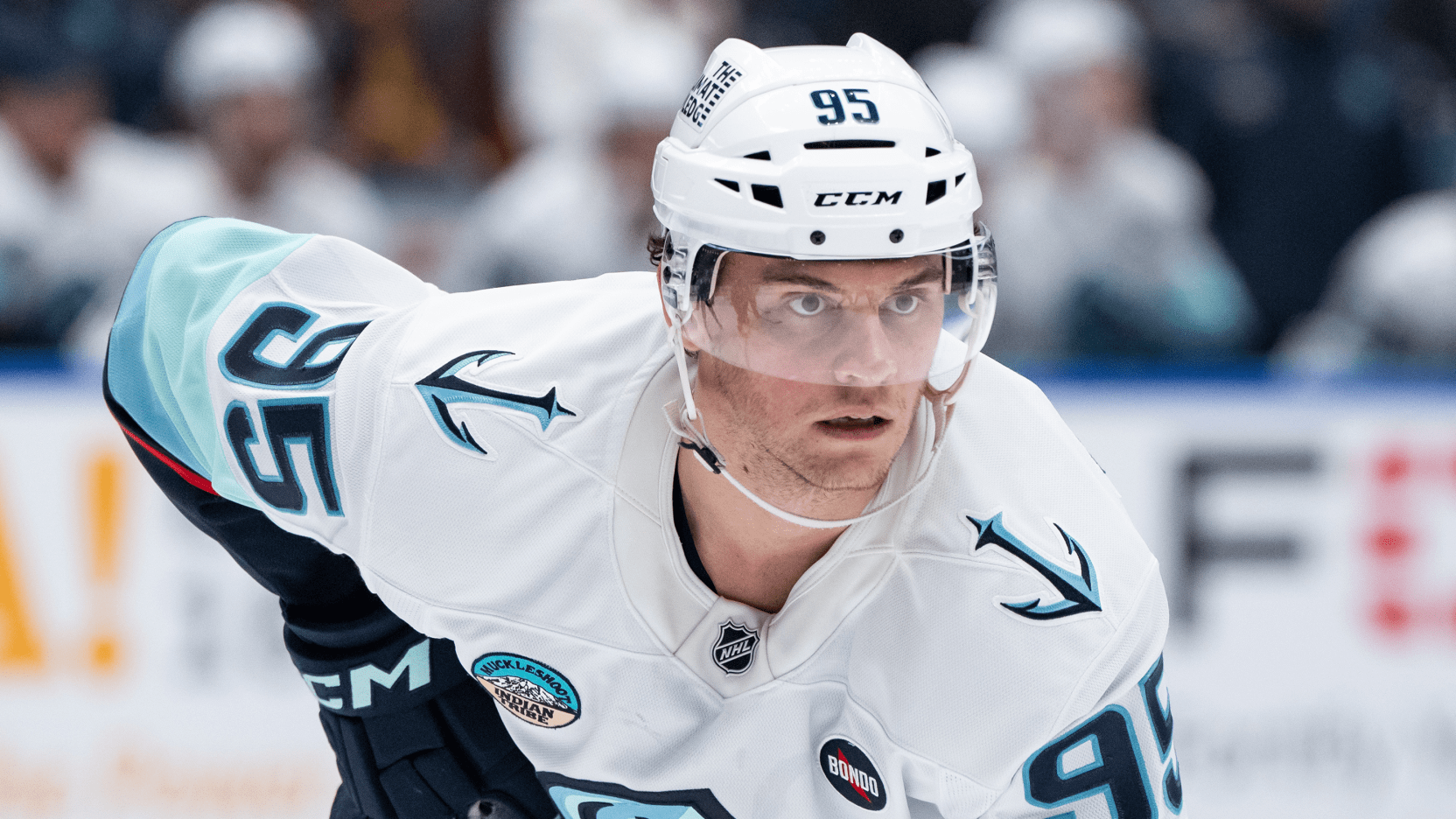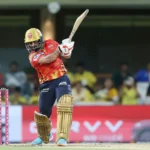The National Hockey League witnessed a notable player transaction on Saturday as the Chicago Blackhawks acquired veteran forward Andre Burakovsky from the Seattle Kraken. In exchange, the Kraken received promising young forward Joe Veleno.
This trade, a direct swap of offensive talent, carries significant implications for both franchises as they navigate their respective paths in the competitive NHL landscape. Such moves often signal strategic shifts for teams, whether aiming for immediate impact, long-term development, or crucial salary cap management.
Burakovsky, a player with a proven track record of championship success, brings a wealth of experience to a Blackhawks team that is actively looking to bolster its roster. Conversely, Veleno, still early in his NHL career, offers the Kraken a younger asset with potential for growth, while also providing valuable financial flexibility. Trades of this nature are rarely simple, reflecting a complex interplay of player performance, contract details, team needs, and future aspirations. This specific deal highlights how NHL general managers continuously evaluate their rosters, seeking to optimize for both present competitiveness and sustainable future success.
Andre Burakovsky: A Veteran Presence for Chicago
The acquisition of Andre Burakovsky provides the Chicago Blackhawks with a seasoned forward boasting a strong offensive pedigree and championship experience.
Burakovsky’s Performance and Pedigree
Andre Burakovsky, now 30 years old, arrives in Chicago with a solid statistical profile from the recent 2024-25 NHL season. While playing for the Seattle Kraken, he accumulated 37 points in 79 games. This total was comprised of 10 goals and 27 assists, showcasing his ability to both score and set up plays. His 27 assists indicate a strong playmaking ability, a valuable asset for any offensive unit.
Beyond his individual statistics, Burakovsky brings an invaluable intangible: championship experience. He is a two-time Stanley Cup winner, a coveted achievement that speaks volumes about his performance in high-pressure situations.
His first Stanley Cup came with the Washington Capitals in 2018, where he played a crucial role in their championship run. He then added a second championship ring with the Colorado Avalanche in 2022, further cementing his reputation as a player who contributes to winning teams. This experience, particularly in the demanding environment of the playoffs, can be instrumental for a developing team like the Blackhawks, offering leadership and a winning mentality to the locker room.
Burakovsky was initially drafted by the Washington Capitals as the No. 23 overall pick in the 2013 NHL Draft, a testament to his high potential recognized early in his career. Throughout his 696 NHL games, spanning his tenures with the Capitals, Avalanche, and Kraken, he has amassed a respectable career total of 387 points, with 153 goals and 234 assists. His playoff record is equally impressive, tallying 47 points (20 goals, 27 assists) in 93 Stanley Cup Playoff games, further demonstrating his ability to elevate his game when it matters most.
Contractual Commitments and Financial Impact
A significant aspect of Burakovsky’s move to Chicago involves his existing contract. He has two seasons remaining on a five-year, $27.5 million contract that he originally signed with the Seattle Kraken on July 13, 2022. This contract carries an average annual value (AAV) of $5.5 million. For the Blackhawks, taking on this contract means adding a substantial cap hit for the next two seasons. However, given their current financial flexibility, this move is strategically viable.
Acquiring a player of Burakovsky’s caliber, even with the remaining term and cap hit, aligns with Chicago’s ongoing roster reconstruction. The Blackhawks are in a phase of building around their young core, and experienced veterans who have won championships can provide crucial mentorship and on-ice stability. The decision to absorb Burakovsky’s contract suggests that Chicago values his offensive production, veteran presence, and ability to contribute to a competitive environment. This acquisition indicates a desire to accelerate their rebuilding process by integrating established talent alongside their emerging prospects.
Joe Veleno: A Youthful Addition for Seattle
The Seattle Kraken’s acquisition of Joe Veleno brings a younger forward with developing skills and a more favorable financial outlook for the franchise.
Veleno’s Recent Performance and Career Trajectory
Joe Veleno, a 25-year-old forward, represents a different kind of asset for the Seattle Kraken. His performance during the 2024-25 NHL season saw him split time between two clubs. He recorded a total of 17 points (eight goals, nine assists) in 74 games this season. Notably, Veleno began the season with the Detroit Red Wings before being traded to the Chicago Blackhawks on March 7, 2025. After joining Chicago, he managed to record seven points (three goals, four assists) in 18 games with the Blackhawks, showing a modest uptick in production following the change of scenery.
Veleno’s professional journey began when he was selected by the Detroit Red Wings as the No. 30 overall pick in the 2018 NHL Draft. His career progression has seen him accumulate 81 points (38 goals, 43 assists) in 306 NHL games across his tenures with both Detroit and Chicago. As a younger player, Veleno still possesses significant room for development, and a fresh start with the Kraken could provide him with an opportunity for an increased role and consistent ice time. His relatively early career statistics suggest a player who can contribute in a bottom-six forward role, with the potential to grow into a more impactful position as he matures.
Contractual Situation and Cap Flexibility for the Kraken
From the Seattle Kraken’s perspective, the trade of Burakovsky for Veleno serves a dual purpose, as highlighted by General Manager Jason Botterill. “Andre was a valuable player for our organization during the three years he was here, and we wish him and his family the best of luck in Chicago,” Botterill stated, acknowledging Burakovsky’s contributions. However, the GM also emphasized the strategic benefits of acquiring Veleno. “In return, we’ve acquired a young player with experience while also increasing our salary cap flexibility moving forward.”
Veleno has one season remaining on a two-year, $4.55 million contract that he signed with the Detroit Red Wings on July 19, 2024. This contract carries an average annual value (AAV) of $2.275 million. By swapping Burakovsky’s $5.5 million AAV for Veleno’s $2.275 million AAV, the Kraken immediately gain over $3.2 million in salary cap flexibility for the upcoming season.
This increased cap space is crucial for the Kraken, who may be looking to make other moves in the offseason, such as signing free agents, re-signing existing players, or pursuing other trade opportunities. The acquisition of a younger player like Veleno, combined with significant cap relief, suggests a strategic re-evaluation of the Kraken’s roster and a focus on building for sustained success while maintaining financial agility. This approach is particularly relevant in the lead-up to key NHL events like the draft and the opening of free agency, where cap space can be a significant advantage.
Strategic Rationale Behind the Trade
Both the Blackhawks and the Kraken have distinct reasons for making this forward-for-forward exchange, aligning with their current organizational goals.
Blackhawks’ Pursuit of Experience and Offense
For the Chicago Blackhawks, the decision to acquire Andre Burakovsky aligns perfectly with their ongoing rebuild. While the team is focused on developing its promising young core, integrating experienced veterans is a critical component of that process. Burakovsky’s two Stanley Cup rings are not just impressive accolades; they represent invaluable experience in what it takes to win at the highest level. His presence in the locker room can serve as a mentor to rising stars.
Furthermore, Burakovsky’s consistent offensive production, particularly his playmaking ability, addresses a clear need for the Blackhawks. A team in a rebuilding phase often struggles with consistent secondary scoring and offensive creativity. With 37 points in 79 games last season, Burakovsky demonstrates he can still contribute meaningfully.
His ability to play both wings and potentially contribute on the power play provides versatility to Chicago’s forward group. The Blackhawks, having ample salary cap space, are in a position to take on Burakovsky’s $5.5 million AAV contract for two more seasons without financial strain. This allows them to add a proven offensive player without hindering their long-term cap flexibility. The trade signifies Chicago’s intention to become more competitive in the near future, leveraging veteran talent to support the development of their foundational young players.
Kraken’s Focus on Youth and Financial Flexibility
The Seattle Kraken’s motivation for this trade revolves around two primary objectives: infusing youth into their roster and gaining significant salary cap flexibility. By trading Burakovsky, who is 30 years old with two years remaining on a relatively expensive contract, for the 25-year-old Joe Veleno, the Kraken acquire a player five years younger. Veleno, as a former first-round pick, still possesses upside and potential for growth, which aligns with building a sustainable core for the future.
The immediate financial benefit is substantial. Swapping Burakovsky’s $5.5 million cap hit for Veleno’s $2.275 million AAV creates over $3.2 million in immediate cap savings for the upcoming season. This newfound flexibility is crucial for a team like the Kraken, which is seeking to optimize its roster composition and potentially address other areas of need through free agency or further trades. General Manager Jason Botterill’s comments underscore this strategic thinking.
By acquiring a “young player with experience” while “increasing our salary cap flexibility,” Seattle is positioning itself for more strategic moves in the short and long term. This trade suggests the Kraken are prioritizing a blend of youth development and financial prudence, allowing them more maneuverability as they continue to shape their franchise.
Implications for Both Franchises Moving Forward
This trade sets the stage for distinct short-term and long-term implications for both the Chicago Blackhawks and the Seattle Kraken.
Blackhawks’ Roster Development and Competitiveness
For the Chicago Blackhawks, the addition of Andre Burakovsky carries several important implications for their roster development and immediate competitiveness. In the short term, Burakovsky provides an immediate upgrade to their top-nine forward group. His offensive skills, particularly his shot and passing, can directly benefit the young players around him. Playing alongside emerging talents, his experience can accelerate their learning curve on the ice.
He offers a reliable offensive presence that the Blackhawks have often lacked in recent seasons. This addition also signals to the fan base a commitment to improving the on-ice product beyond just drafting top prospects.
In the long term, Burakovsky’s two-year contract aligns well with Chicago’s rebuilding timeline. By the time his contract expires, many of their top prospects will have ideally transitioned into full-time NHL roles. He serves as a bridge, providing veteran leadership and production during this crucial development period. Furthermore, his championship pedigree can help instill a winning culture within the organization, something invaluable for a young team.
While the Blackhawks absorbed a notable cap hit, their significant cap space means this move doesn’t restrict their ability to make further additions or sign their own young players to extensions in the future. This trade positions Chicago to be more competitive in the immediate term while remaining committed to its long-term vision.
Kraken’s Future Planning and Market Opportunities
The Seattle Kraken’s acquisition of Joe Veleno and the associated salary cap savings are pivotal for their future planning and navigating the upcoming market. In the immediate future, the significant cap flexibility gained from moving Burakovsky’s contract allows the Kraken greater agility in the summer. They now have more room to pursue unrestricted free agents, re-sign their own pending free agents, or even take on another contract in a different trade if a suitable opportunity arises. This financial breathing room is a valuable asset in a league where cap space is often a premium.
Longer term, the addition of Joe Veleno provides the Kraken with a younger, cost-controlled asset who fits their organizational timeline. At 25, Veleno is still in the prime of his development window. While his offensive numbers have been modest, his strong two-way play and versatility as a center or wing make him a valuable depth piece.
A fresh start in Seattle could lead to an expanded role and increased production. Furthermore, if Veleno develops as anticipated, his lower cap hit ($2.275 million) for the upcoming season means he could be a very cost-effective player for the Kraken. If his performance warrants it, they would then have the option to re-sign him, potentially to a long-term deal that is favorable to the team. This trade underscores Seattle’s strategic approach: seeking value in younger players with upside while maintaining financial flexibility to build a sustainable and competitive roster.
Calculated Move for Both NHL Teams
The trade sending two-time Stanley Cup winner Andre Burakovsky to the Chicago Blackhawks in exchange for Joe Veleno from the Seattle Kraken represents a calculated strategic maneuver for both NHL franchises. For the Blackhawks, the acquisition of Burakovsky, a 30-year-old forward with 37 points last season, adds much-needed veteran presence, offensive firepower, and invaluable championship experience to a rebuilding roster, signaling a step towards increased competitiveness. His $5.5 million AAV contract is manageable given Chicago’s current cap space, aligning with their plan to support their young core.
Conversely, the Kraken’s decision to move Burakovsky, as stated by GM Jason Botterill, was driven by the desire for “a young player with experience” in Veleno and, crucially, to “increase our salary cap flexibility.” Veleno, a 25-year-old forward with 17 points this season, offers youth and potential growth, while his $2.275 million AAV contract provides significant cap relief, granting Seattle greater maneuverability in the upcoming offseason to pursue other roster enhancements. This player swap exemplifies how NHL teams continuously recalibrate their strategies, balancing immediate needs with long-term vision to build successful and sustainable franchises.







